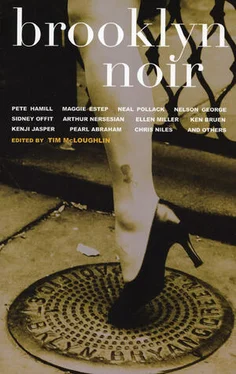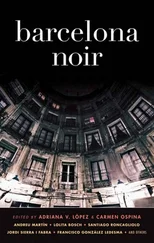I did what she asked. Diane bent over me. She put the gun in my mouth.
“Try anything, and I pull the trigger.”
Katie took another picture.
With her spare hand, Diane undid my belt buckle, and the button and zipper of my jeans. She seemed to hover for a second.
“I can’t do this,” she said.
“What?” Katie replied.
“I’m not going to suck this guy’s cock.”
Oh, please do , I thought.
“Well, I’m not going to do it, either,” Katie said.
They both stared at me. I stared back. Maybe one of them would change her mind.
“Get up and open the gate,” Diane said.
I sighed and did what they said. Diane caressed my cheek.
“You’re not going to tell anyone, are you?” she asked.
“No,” I said. “Keep the money.”
“Good boy,” said Katie.
“But don’t come back,” I added.
“Don’t worry,” Katie said, “you’ll never see us again.”
And they were gone.
I stopped for a couple of drinks on the way home. On the television hanging over the bar was a news report. Some yuppie kids had been arrested trying to stick someone up in front of the TKTS booth in Times Square, and a similar incident had occurred at the Bronx Zoo. They said they’d been on a scavenger hunt. The Scavenger Hunt Robberies , the news called them.
By morning, the Post would have reports of a half-dozen. Mine wasn’t among them. It never would be.
I got home around 3 a.m.
“Who do you think you are?” said my wife.
“No one,” I answered.
Just the creepy guy who runs the carousel.
The Code
by Norman Kelley
[Produced by T-Sound. 17:20; EP
Free people are free to make mistakes and commit crimes and do bad things.
— Donald Rumsfeld
Prospect Heights
Code had always survived by the philosophy that he lived by; he recognized no other man’s law but his own: Take whatever is needed and fuck all the rest. He was the real thing: a bona fide nigga-man who lived and survived the streets. Unlike an array of fake niggaz who recorded stories about the ’hood, he was the real deal. He had the scars to prove it, the wages of sin, and he made sure that bitchez paid special attention to them when they worshipped his battle-scared body. No bitch ever left his threatening grip without kissing his keloid medals of the street, wounds received from rival niggaz and Five-Os.
Upon arriving upstate he had shanked two motherfuckahs Day One who looked at him as if he were sweet meat. He wasn’t gonna play that faggot shit. He got their minds right — as well as the whole cellblock. He had no time for that shit. His time was short and he wasn’t going to be cornered into taking sides in simple-minded prison gangs. A tag quickly went down that Code wasn’t somebody you wanted to fuck with. He sat alone and was given respect. OGs nodded and went their way; the younger ones just kept moving.
Code did his time: He worked in the prison shops, did his daily 300 push-ups, and worked on his rhymes. He was planning to make his own luck when he returned to the city and produce his masterstroke: The Code It would be the story of one bold, bad, crazy nigga’s life in the ’hood, back in Brooklyn, back in Prospect Heights. It would have everything that urban contemporary airplay craved: phat beats, flowing delivery, and the chronicle of a real nigga’s life, not back in the day but here in the moment, meaning a nigga telling it like it is — gun-play, lurid depiction of urban scenes, and plenty of fucking. He was going to go even further and have the screams of snuffed-out bitchez mixed in. Of course, no one would know if the cries were true or not (except him), but he would let others know that when he spoke of contemporary urban reality, he was beyond keepin’ it real. He was making it a fuckin’ reality. He had no time for fake niggaz frontin’ a reality he already knew about.
When Code’s lurid tales of murderous mayhem coursed their way through the underground, neighborhoods that had been relatively quiet spiked in crime. It took awhile for the police to figure out what was going on in certain neighborhoods, but they eventually found a correlation between Code’s underground tapes and an increase in robbery, spousal abuse, and urban cowboy antics. He “Ain’t Fuckin’ Around,” as he relayed in one song:
There was nobody or
No one to hold me down
I’ve kicked every motherfuckah
Even my mama around
Niggaz knows me as a man about town
Ain’t no motherfuckah who doesn’t know that
I ain’t fuckin’ around
Or:
Yeah, baby, let me do it to you
I knew you’d love it since you’re just cooze
I’ve never met a bitch that wouldn’t do the do
It’s my God-given right to smack you & be cruel
You know you like
You know you like that
You know you like it
And if you don’t you’re still gonna be smacked
“You Know You Like It” was accompanied by the dickhardening, ass-smacking sound of a woman screaming, “Yeah, fuck me!” That caught the ear of Dr. Rhyme, one of hip hop’s most influential producers, the genius behind Da Sick Niggaz Convention Rhyme put his trackers out to find that “crazy motherfuckah with the sick-ass lyrics and slick production.”
Word went out on the street, and Code’s hands went into his pocket when two unfamiliar niggaz unexpectedly approached him at his local hang spot, Club Prospect on Franklin Street.
“Who the FUCK sent you?” he screamed at one, who was down on his knees, mouth bleeding from the pistol whipping he had just received from Code. Code was nervous; rumors were circulating that two of the other chart-topping rappers, Wuz Dat and Killadelic, had ceased their war and were thinking about jacking his ass up: The new nigga on the block was a threat. And Code could always smell another nigga’s evil ways blocks ahead.
The club went silent: The doors were locked and all the customers witnessed the legendary Bad One in action. Only a few were disgusted by Code’s criminal-mindedness. Most of the patrons, young men and women from the neighborhood, had become inured to the random display of violence, which was increasingly the soundtrack to their reality. Watching Code was like watching a power fantasy in actual play. He was a brother in control and knew how to handle another nigga. Even the club’s exotic dancers stopped moving and watched Code at work. Finally, one of the men was given permission to reach into his jacket pocket and retrieve a card with Dr. Rhyme’s telephone number.
With his 9mm’s barrel jacked up against the roof of one of the nigga’s mouths, his foot on the neck of the other emissary from Rhyme & Crime Records, dialing his cellphone with his thumb, Code found that the doctor was in New York. The doctor wanted to know if he was ready to be a serious music playa. If so, would he join him for dinner in Manhattan?
Used to Mickey D’s or curry goat with dirty rice and beans, Code and his thuggish trio of bodyguards rolled into an Upper East Side restaurant on 61st Street. Their presence caused some consternation (it was mainly the display of do-rags, sports jerseys, oversized trousers, and untied shoes) until Dr. Rhyme approached the maitre d’ and interceded. A gray velvet jacket was placed on Code, and his boys were told to park their rumpled asses at a bar that kept him in their eyesight.
“I’m sorry about that misunderstanding with yo’ niggaz,” said Code as he sat down, referring to Rhyme’s messengers.
Dr. Rhyme was gracious; as a former Cali gang-banger, he understood the dictates of security; it was the code of the streets. Obviously, his agents hadn’t approached Code with respect, and respect was important. He would dispose of them accordingly.
Читать дальше












